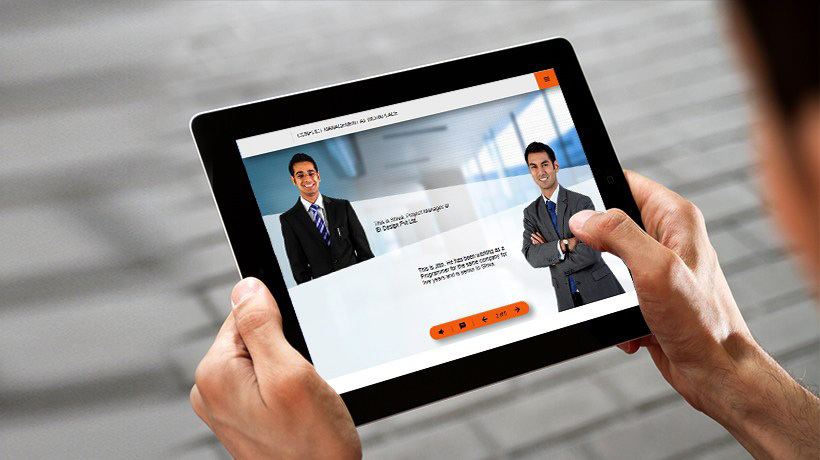How To Use Real-Life Situations In eLearning: 7 Examples On Scenario-Based Learning
Scenario-based learning uses real-life situations to validate the learning comprehension and, more significantly, its eventual application.
It offers a highly interactive and immersive approach that can be used effectively by organizations to:
- Check-point learners’ knowledge.
- Check if learners will be able to apply the learning on the job.
From a learner’s perspective, it provides:
- A problem-solving environment that is relatable (as it depicts real-life situations).
- Safe mode to practice.
- Understand the impact/consequences of their decisions and choices.
Why Is Scenario-Based Learning A Popular Choice For Instructional Designers?
You can use several design approaches to craft scenario-based learning. These could range from simple images and animations to videos and interactive videos, and build up real-life situations. It can be used to check comprehension, as well as an application across most of the corporate training needs.
You can craft scenarios at 2 levels:
- Mini or basic scenario-based learning
This is used to validate learner’s recall and basic comprehension (good for basic problem solving). - Complex or branching scenario-based learning
This is used to validate learner’s proficiency to apply the learning.
It is a flexible instructional approach and you can use it:
- Within a traditional eLearning course at suitable junctures (such as "pause and reflect" or in a check-your-understanding assessment).
- Alternatively, you can drive the entire course through a narrative/master scenario/story with a cast of characters and have a combination of scenarios within the learning path.
- You can weave gamification and microlearning elements also with scenario-based learning.
What Are The Key Benefits Of Scenario-Based Learning?
You can use scenario-based learning to create both formal and informal training solutions. The key benefits you will see are:
- Sticky learning experiences
- Facilitate problem-solving in learners
- Provide guided exploration to learners
- Safe practice zone and gain proficiency and mastery
- Allow learners to make mistakes and through feedback reinforce the right approach
- Reinforce primary messaging
How Can You Use Scenario-Based Learning?
At EI Design, we have successfully used this approach for corporate training needs including:
- Compliance
- Soft skills
- Professional skills
- Application simulations
Examples Of Formal Learning
Example 1: Compliance
This course uses a standard scenario-based approach with relevant imagery as a backdrop overlaid with text and characters. In addition, it has intuitive layouts to make learning simple, effective, and scalable for rapid development.


Example 2: Soft Skills
An interactive exercise demonstrating a conflict scenario at the workplace where the learners could relate him/herself in the situation and make decisions. This mobile-friendly engaging interaction was designed to ensure sticky learning. Learners get a chance to walk through and interact with a series of scenarios in this multi-device course to identify and mitigate conflict situations at the workplace.


Example 3: Professional Skills
This module introduces learners to the different types of audio strategy available for use. More importantly, the goal is to help learners identify the most relevant and suitable audio strategy in a course. A storyline that uses branched scenarios is able to involve learners and provide a realistic context for them so that they can utilize their learning effectively in a real-world setting.


Examples Of Informal Learning
Example 1: Compliance
This nugget features a video that uses high-impact contextual imagery, and recaps the basic aspects of an HSE compliance course. It reinforces the need for constant risk assessment of hazards at the workplace. Specifically, it uses a scenario to help learners identify a potential hazard and prompts the right action through feedback.


Example 2: Soft Skills
This microlearning nugget features a branching scenario with a visual indication of how learners fare with the choices they make. The learners are presented with a real-life scenario (a project need). Based on the learning of the primary learning course, they need to apply their knowledge and determine the right audio strategy for this project.


Summary
I hope this article showcases the learning experiences you can create with scenario-based learning. You can weave in trending techniques like gamification, interactive videos into your scenarios to further enhance its impact. If you have any queries, do contact me at [email protected].
Read More:
- 2 Great Story-Based Learning Examples to Create Engaging eLearning
- How To Use Microlearning To Promote Informal Learning At The Workplace
- Tips And Best Practices To Create Highly Effective Blended Training Program Design








